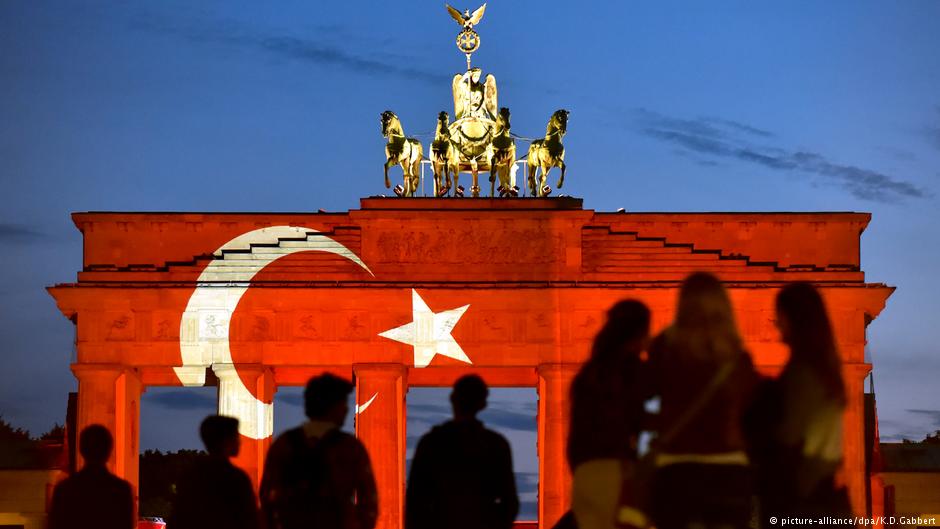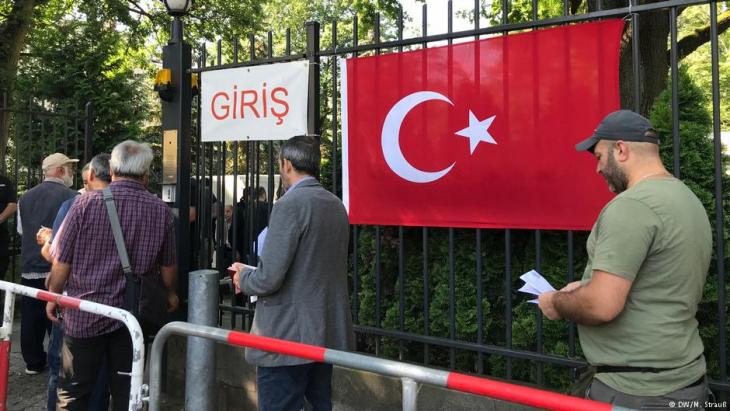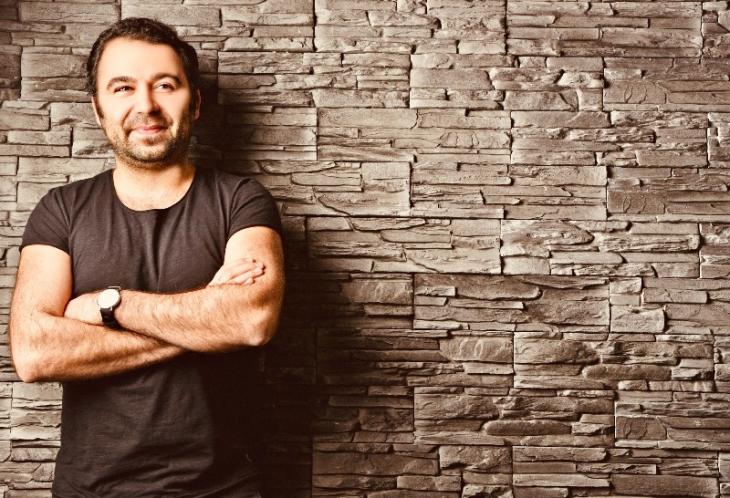Turkish brain drainers versus guest workers

"A cappuccino and a ginger tea, please." Fatih has finished work for the day. Along with puppy Lola, the latest addition to the family, the 35-year-old man with the shorn head seeks shelter from the Berlin winter drizzle in a cafe. An electrical engineer, he has been enjoying life in the capital for more than four years. Before that, he lived in Ankara. Until he and his wife made the decision to emigrate.
Fatih is part of the "brain-drain movement" that has gripped Turkey since the failed coup attempt in July 2016. A generation of well-educated graduates and entrepreneurs, for whom the world is more attractive than Turkey and who leave because they can. Destined for England, France, Spain and Germany.
His work back home had been good, "white collar", he is keen to stress. He didn’t experience any direct restrictions by the authorities. But the subliminal pressure of the current political situation made many people anxious, he says.
Cut off from the rest of society
"What used to get me down in Ankara – and this isn’t only because of the political leadership, we as people also bear some of the responsibility – is that we were so cut off from the rest of society. The places I went to as a student have changed. So we, the "white collars", thronged the same cafes, bars, streets. Places where you’ll always find the same people, the same drinks. At some point I’d just had enough," he says. What he likes about Berlin is the freedom, the different types of people, the parks.
In Berlin, Fatih is one of the "new wave Turks" dispersed across the capitals of Europe; a group that has a good grasp of English and that claims to have nothing in common with the "first wave", otherwise known as guest workers.

Fatih has cousins in Berlin. "Almanci", or "Deutschlander", as German-Turks are referred to in Turkey, sometimes disparagingly. There were regular discussions between the family members. "They’re always saying how great Turkey is and that they want to move there. I try and explain to them that it all looks very different if you’re working there and able to get under the skin of society."
"They like the fact that because of Erdogan, the Germans are taking the Turks seriously for the first time. But they aren’t affected, the real impact is felt by people in Turkey," Fatih continues.For Fatih, the gulf between the two groups is just a symptom. "Turkish society is extremely divided. Neither group understands the other and has no respect for the lifestyle of the other," he says. Politics has polarised society. How the problem can be solved, he doesn’t know.
In a bar on the top floor of a hotel, Handan Karatas sits holding a martini and gazing down on the Kurfurstendamm boulevard in western Berlin. As the daughter of guest workers, she is among those for whom Turkey was always the true homeland – and always a dream away.
"In Germany I often experienced racism. Maybe that’s partly why my yearning for Istanbul grew," she says. After graduating, she fulfilled one of her dreams and went to live in the Turkish city for a few years. But she also experienced discrimination from other Turks. "There’s this image of what’s termed "Deutschlander": uneducated, nouveau-riche provincials picking up money off the streets."
"Antipathy turned to hatred"
Today, Handan is back in Berlin. In recent years, she says, the antipathy that Turks living in Turkey felt towards Almanci suddenly turned to hatred. The message coming out of Turkey was "you’re voting for the AKP, but you’re far away and don’t feel the impact."
"I observed that the "new wave Turks" are trying to show the world: we’re better than the other Turks," she continues. That the brain-drainers are scornful of the achievements of their parent’s generation is something that angers and saddens her. "Back then, people came under very difficult circumstances. People these days just sit in the nest and despise those who’ve feathered it so nicely for them."

And the solution to the problem? "We need to sit down at the same table and talk to each other. After all, prejudice springs from ignorance," she says.
Someone else who is upset by the mutual reservations of his compatriots is Turkish-language Berlin comedian Safak Salda. He recently built the issue into one of his routines. The man with the friendly face is only too familiar with the reservations of the "new Turks". "When I came to Germany after finishing my studies, I didn’t think any differently, I must admit," he says. But as the years have passed, he has realised just how wrong he was.
"For decades, people here provided financial support to their relatives in Turkey. In 2018 alone, 800 million Euros were transferred from Germany to Turkey. And besides that, German-Turks on holiday in Turkey spend more than all the other tourists. You can’t profit from these people while despising them at the same time," says Salda.
"Suitcase baby" generation
Statistically speaking, the idea that Turks living in Germany are an AKP vote repository is quite simply wrong, he continues. Of the 3.5 million Turks living in Germany, just 350,000 voted for the AKP, meaning that this could not have influenced the election result in any way.
And then there is a lot of ignorance, he says. "You just have to take a look at the people who came here from Anatolia back then. They include, for example, many Alevis who lost relatives in one of the attacks. And then there’s what’s known as the "suitcase baby generation" children, who were sent back and forth between the two countries because their parents were working so hard and didn’t have time to look after them, children raised by relatives and to this day unable to establish a relationship with their birth parents," Salda continues. And, he adds, we shouldn’t forget one thing: Sooner or later, each and every person with a Turkish background living in Germany becomes a "Deutschlander".
Ceyda Nurtsch
© Qantara.de 2019
Translated from the German by Nina Coon
